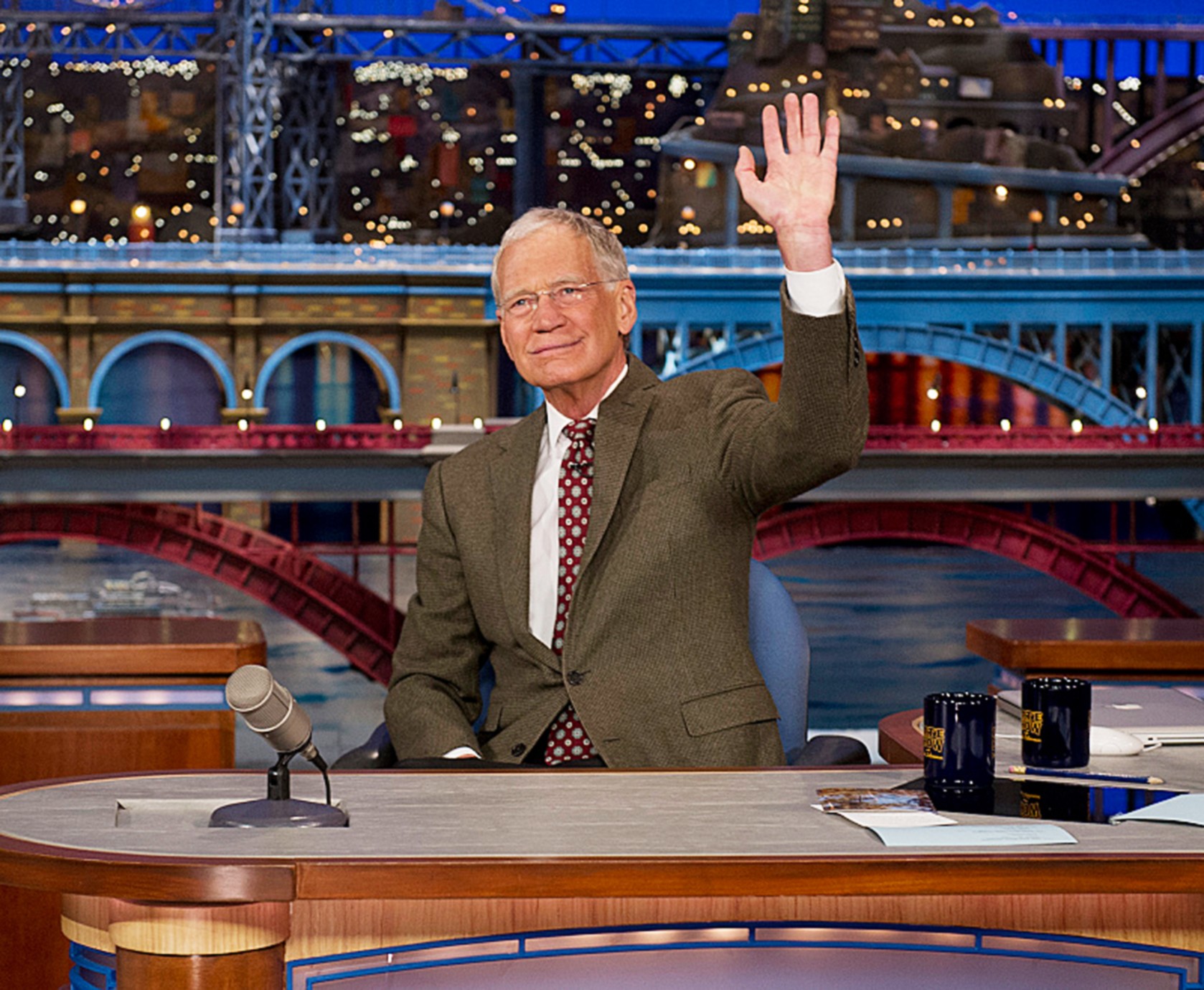
The many, many remembrances of the TV career of David Letterman—which ends tonight with his final episode of The Late Show—have tended to focus on a past more distant than recent, running through bits from his breakthrough Late Night with David Letterman. Letterman has been indefatigable, putting on a show night after night even after the retirement of his rival, Jay Leno. Yet to be an admirer of Letterman’s to have a fondness not just for a television star who came to prominence decades ago, but for a television sensibility from a different era. Letterman’s pathbreaking irony has been celebrated, yet that trait has only grown more common among other late-night TV hosts. But it was Letterman’s pre-internet earnestness that was such a valuable corrective to the rest of TV.
Letterman’s direct competition—Jimmy Fallon on NBC and Jimmy Kimmel on ABC—have both learned how to consistently go viral in their own respective ways: Fallon through games and musical interludes, Kimmel through pranks and the somewhat cynical “Celebrities Read Mean Tweets” feature. Now, the rudimentary elements of a late-night show—from monologue to guests to musical performance—are all about the search for five minutes of footage absurd, surprising, inventive, or sharp enough to get clicks the next morning. The Late Show has felt less central to the culture in recent years than it has since its creation; while it’s still competitive in the ratings, its following online is relatively miniscule. Letterman’s show has some 217,000 subscribers on YouTube, compared to nearly 5.9 million for Kimmel and 7.3 million for Fallon. Letterman’s segments that do make the rounds are usually taken from interviews. (Neither Kimmel nor Fallon, who excel in other aspects of hosting, is a master of this fundamental in the way Letterman is.) It’s just not an arena in which Letterman chooses to compete.
And that’s fine. Letterman was an ironist and an often-barbed interviewer, but he wasn’t exhausting. The hunt for the next “Lip Sync Battle” has placed hourlong late-night shows at the center of web culture. It’s also made the shows themselves more chaotic, with a Muppet Show-ish frenetic energy and a desire to be liked. Stephen Colbert, a master wordsmith with a passion for stage performing, fits into this world; Letterman doesn’t.
Kimmel and Fallon are trying to please everyone: They want to produce content likable enough (read: not too weird) that any viewer would immediately understand and retweet it. Letterman, by contrast, drilled down on his own interests enough to convince a potentially hostile viewer to share them. His lack of fear about alienating viewers—indeed, the degree to which he seemed to relish it—is far from the vogue. To mourn Letterman’s show is to mark the end of one sensibility on TV, and the entrenchment of another.
More Must-Reads from TIME
- Donald Trump Is TIME's 2024 Person of the Year
- Why We Chose Trump as Person of the Year
- Is Intermittent Fasting Good or Bad for You?
- The 100 Must-Read Books of 2024
- The 20 Best Christmas TV Episodes
- Column: If Optimism Feels Ridiculous Now, Try Hope
- The Future of Climate Action Is Trade Policy
- Merle Bombardieri Is Helping People Make the Baby Decision
Contact us at letters@time.com